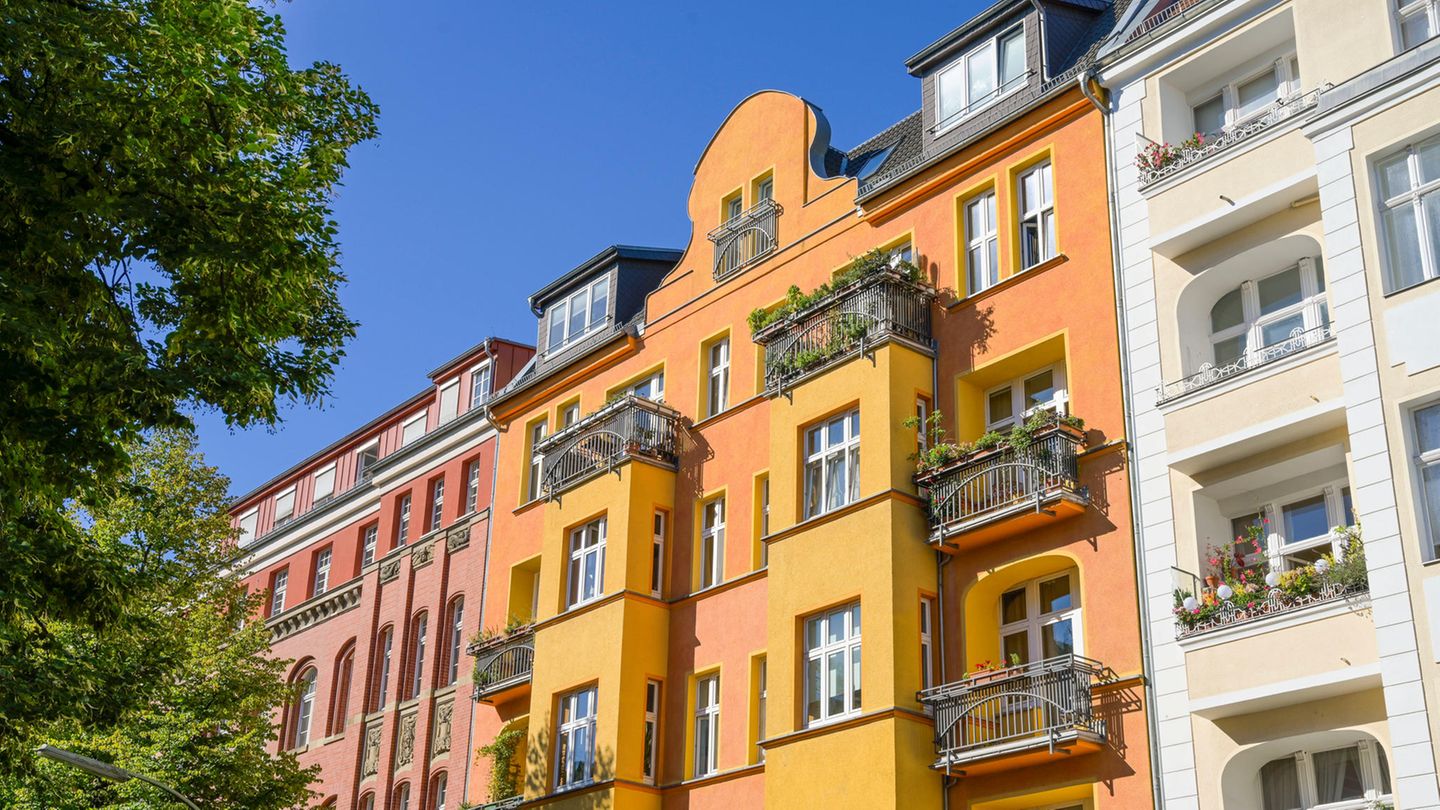Rental apartments are becoming more expensive, but not all of them and everywhere. An evaluation by Immoscout shows different developments for existing apartments and new buildings. This may also have something to do with the energy costs.
The biggest concern of tenants was recently the exploding energy prices. Heating and electricity became so expensive that the term “ancillary costs” sounded like quite an understatement. But the actual main costs, the basic rent, also rose noticeably last year.
According to an analysis by , asking rents for existing apartments in 75 out of 79 cities rose in 2022. In Berlin it was five percent more, in Hamburg seven percent, in Münster, Reutlingen, Potsdam and Lübeck it was even double digits. This is due to a trend reversal on the real estate market: for years, real estate prices rose faster than rents. But with interest rates soaring, many can no longer afford to buy them. As a result, rental apartments are in greater demand and rents are rising.
But if you take a closer look, you will see a second development within the major trend. In the expensive cities, the rental offers for existing apartments and new apartments have recently developed significantly apart. The current shows that existing apartments in major cities were hardly more expensive in the fourth quarter of 2022 than in the previous quarter. In Berlin, Cologne and Dusseldorf they were offered even cheaper. Newly built rental apartments, on the other hand, were rented at significantly higher prices than before in almost all major cities.
In Cologne, for example, existing apartments were offered 2.5 percent cheaper in the fourth quarter of 2022 than in the previous quarter, while new apartments were 2.9 percent more expensive. In Berlin and Düsseldorf, too, existing buildings became cheaper and new buildings more expensive. In Stuttgart, Munich and Frankfurt, rents for existing apartments rose, but at a much slower rate than for new buildings. Only in Hamburg can the trend not be observed in the current figures.
Net cold rent for a 70 square meter apartment in Q4 2022 (and development compared to Q3 2022)
|
city |
Duration |
development stock |
new building |
Development new building |
|
Berlin |
802 euros |
-0.3% |
1117 euros |
+1.3% |
|
Dusseldorf |
772 euros |
-1.8% |
955 euros |
+2.2% |
|
Frankfurt |
921 euros |
+0.1% |
1096 euros |
+1.5% |
|
Hamburg |
900 euros |
+0.7% |
1049 euros |
+0.2% |
|
Cologne |
818 euros |
-2.5% |
960 euros |
+2.9% |
|
Munich |
1244 euros |
+0.2% |
1496 euros |
+3.1% |
|
Stuttgart |
904 euros |
+2.4% |
1143 euros |
+4.2% |
offer rents; own representation; Source: Immoscout
Better new construction than unrenovated stock
The fact that new-build apartments are becoming more expensive can be partly explained by the fact that rental prices here are unregulated. However, since existing apartments are sometimes becoming cheaper, there is much to suggest that these are generally losing their attractiveness due to higher heating costs. “Due to concerns about rising energy costs, tenants seem to be increasingly looking for new apartments that are significantly more energy-efficient than the often inadequately renovated existing housing stock,” says Immoscout boss Gesa Crockford. “Accordingly, demand and asking rents in new buildings are rising much more than in existing buildings.” Immoscout sees this development not only in the prices called, but also in the number of inquiries via the platform. According to Immoscout, this trend cannot be observed across Germany, it only applies to the expensive metropolises.
In general, however, energy prices are of course playing an increasingly important role in tenant calculations. According to Immoscout, the share of ancillary costs in the total rent rose from 16.8 to 18.3 percent last year despite rising rents. Experts fear that the situation on the rental market could deteriorate further. The fact that many prospective buyers are renting instead of buying because of the worsening financing conditions and high prices is only one factor. The construction of new apartments is also progressing slowly due to a lack of craftsmen and expensive materials.
Source: Stern
Jane Stock is a technology author, who has written for 24 Hours World. She writes about the latest in technology news and trends, and is always on the lookout for new and innovative ways to improve his audience’s experience.




